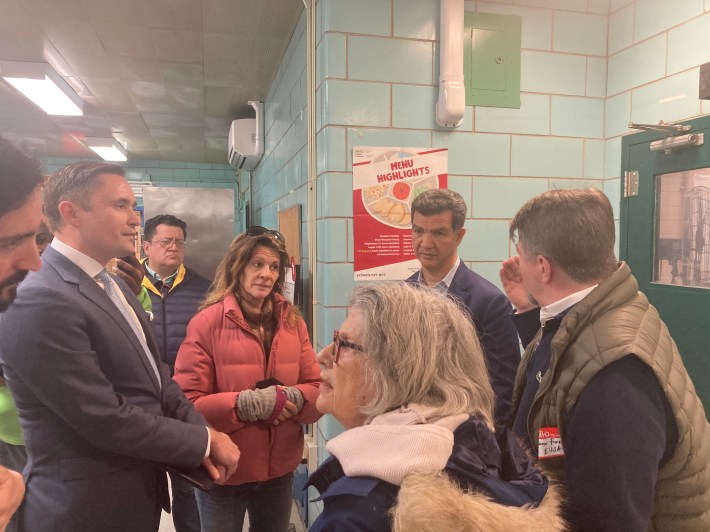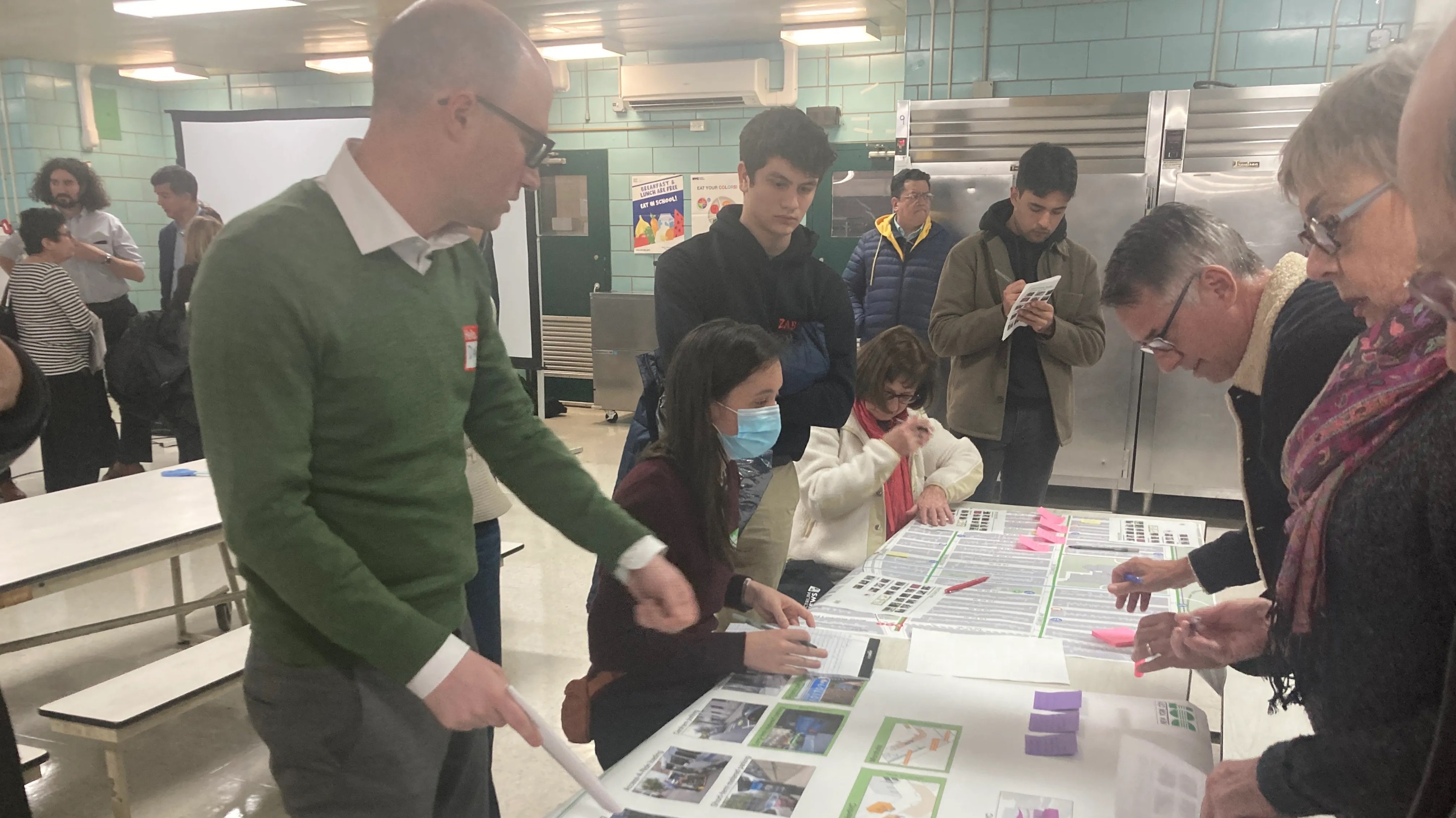Dozens of Upper West Siders packed a school lunchroom on Monday night to defend their right to park — turning a modest city effort to reimagine curb space in the neighborhood into a pro-car meltdown.
Spurred by inaccurate rumors spread through email chains and online message boards like NextDoor that the city planned to remove every parking spot in the neighborhood, hordes of angry residents stormed the meeting at a W. 84th Street elementary school to assert their refusal to give up their right to parking for free on publicly-owned streets.
Officials from the Department of Transportation dismissed those fears — explaining that the goal of the meeting, which was broken up into small groups for discussion, was to get input from the community about how best to utilize the curb in order to better accommodate growing demands, as part of a new pilot program called Smart Curbs.
“From talking to some people coming into the room today, we were hearing a lot of alarming things. It seems there's some message being spread that this is a proposal to remove all parking on the Upper West Side," DOT’s Jonathan Hawkins told the crowd of about 100 people sitting in the cafeteria, where colorful posters made by the young students implored the world to “Stop Pollution.”
"First of all, there is no proposal of any sort — that is what this workshop is for…to help craft a proposal," Hawkins said. "Secondly, there is no intention of blanketly getting rid of parking."
Hawkins explained that the meeting was simply first public outreach for a study of what the "Smart Curbs" initiative could look like on the Upper West Side, between the boundaries of 72nd Street to the south, 86th Street to the north, Broadway to the west and Central Park to the east. The neighborhood is overrun with trucks and vans delivering online packages, resulting in dangerous double parking and blocked bike lanes and sidewalks.
“We’re here to find targeted solutions to problems,” Hawkins said. “What it essentially means is taking a comprehensive look at our curb lanes, the regulations, the programming, what's there now, what needs are not being served, how do we serve them.”

And DOT Commissioner Ydanis Rodriguez, also on hand for the meeting, said the city selected the neighborhood — where more than 70 percent of households do not own a car — because of its density and high demand for the curb, including for things like deliveries, drop-offs, outdoor dining and, of course, parking.
“This is one of the denser residential neighborhoods, not only in NYC, but in the United States. There’s many different demands at the curb,” said Rodriguez, citing the massive growth in home deliveries from online retailers like Amazon-Whole Foods, particularly during the pandemic. Nearly 80 percent of New Yorkers are placing at least one online order per once a week, Rodriguez said. Some 22 percent place an order four times a week.
“Yes, we have to plan for people who demand parking, we are not saying not to park. We wanted to start here, in this pilot project, listening from the community on how we reimagine the community,” said Rodriguez.
While the DOT is still only collecting feedback and ideas from the community, possible ways to reimagine the curb include new and existing policies such as delivery microhubs, loading zones, bike parking, curb sensors, and what's called Pay-by-Plate metered parking, according to the city.
And despite the rumors and falsehoods spread before the meeting, it’s ultimately good that the community came out to learn the truth, said Upper West Sider Andy Rosenthal.
“When I saw them advertising it as such on things like Nextdoor, I knew that the rational minds had to get here to at least counterbalance,” he said. "I think it's the right thing, it's an experiment. We should create loading zones."
“There's absolutely an issue at the curb, I think it’s acknowledged by most people here. It’s a scarce resource, how are we gonna allocate it? There's a small minority that thinks they have a right to it regardless of what other people want to use it for, that's what we're here for tonight.”
Meanwhile, at one far end of the room, anti-e-bike, anti-congestion pricing activist Andrew Fine and his allies cornered Rodriguez and his colleagues — refusing to participate in the workshop and instead berating the city officials for their policies.

“The little groups are a charade. This is a farce. Most people that showed up here are against this curb management plan. We don't want the DOT to reimagine anything,” said Fine, a founding member of the NYC E-Vehicle Safety Alliance.
But not everyone opponents scared into attending the meeting agreed. One such person, a Columbus Avenue resident named Irene, said she showed up to protest the blanket removal of car parking, but is supportive of more modest changes.
“As a car owner, I don't want to lose my parking, but it doesn't sound like that's what they're exactly doing,” said Irene, who asked that her last name not be used because she works for a competing news organization, adding that she would love to see more enforcement of things like double parking and less traffic on her street. “Something has to be done.”






